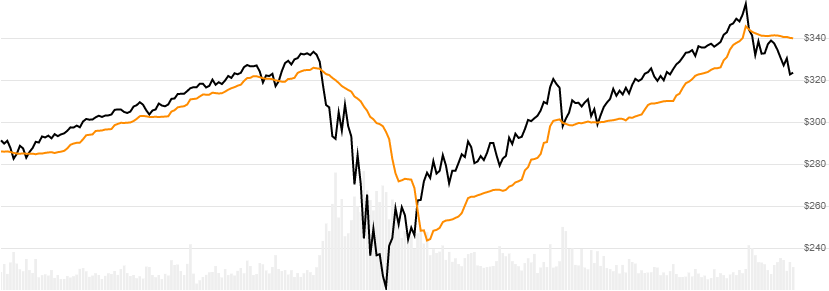Chandelier Exit
Created by Charles Le Beau, the Chandelier Exit is an adjusted Average True Range (ATR) offset from price that is is typically used for stop-loss and can be computed for both long or short types. [Discuss] 💬

// C# usage syntax
IEnumerable<ChandelierResult> results =
quotes.GetChandelier(lookbackPeriods, multiplier, type);
Parameters
lookbackPeriods int - Number of periods (N) for the lookback evaluation. Default is 22.
multiplier double - Multiplier number must be a positive value. Default is 3.
type ChandelierType - Direction of exit. See ChandelierType options below. Default is ChandelierType.Long.
Historical quotes requirements
You must have at least N+1 periods of quotes to cover the warmup periods.
quotes is a collection of generic TQuote historical price quotes. It should have a consistent frequency (day, hour, minute, etc). See the Guide for more information.
ChandelierType options
ChandelierType.Long - Intended as stop loss value for long positions. (default)
ChandelierType.Short - Intended as stop loss value for short positions.
Response
IEnumerable<ChandelierResult>
- This method returns a time series of all available indicator values for the
quotesprovided. - It always returns the same number of elements as there are in the historical quotes.
- It does not return a single incremental indicator value.
- The first
Nperiods will havenullChandelier values since there’s not enough data to calculate.
ChandelierResult
Date DateTime - Date from evaluated TQuote
ChandelierExit double - Exit line
Utilities
See Utilities and helpers for more information.
Chaining
Results can be further processed on ChandelierExit with additional chain-enabled indicators.
// example
var results = quotes
.GetChandelier(..)
.GetEma(..);
This indicator must be generated from quotes and cannot be generated from results of another chain-enabled indicator or method.